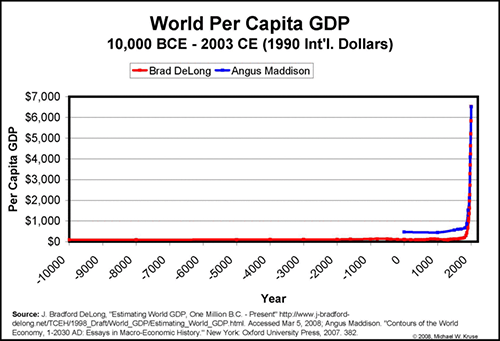Some movie reviews
May 26th, 2018
These are cut-and-pasted from Netflix. With very rare exceptions, I only write reviews for movies I disliked – it’s my way of getting revenge.
There are no spoilers here. All ratings are in the range 1 to 5 stars.
[Edit: I see that 12/14 of the reviews below use the word “stupid”. I suppose that says something not terribly flattering about myself. So be it. It’s still how I feel about these films.]
Things to Come
The Gestapo will save us from war, hatred, and irrationality and create a paradise of identically black-suited heroes who rule and identically white-gowned citizens who obey, all living in a futuristic world with lots of pneumatic tubes. Underground. And they will have television. But, of course the Gestapo (or is it Stasi? Or Checka? hard to tell) rule in the name of Humanity, so it’s all good. But they don’t approve of private airplanes. H.G. Wells personally oversaw every detail of this film. It supposedly represents his vision of an ideal (!) future world. (He supported something he called “liberal fascism”, and it shows.) Acting is high school play quality. (On the low end of that.) Special effects were good for 1938. I give it 2 stars, both for historical interest. The film isn’t worth watching aside from that.
Sunshine
I used to think Gravity was the worst recent science-fiction film. No longer. Gravity was stupid, terrible, and stupid (with great special effects and pretty good acting). But Sunshine is bad on a whole different level. It has *layers* of stupid, each dumber than the next. Layers upon layers of stupid. It’s really an amazing achivement. But not amazing enough to make it worth watching. It’s not “fun stupid” like Plan 9 From Outer Space. It’s just…. well, don’t watch it.
Interstellar
The stupid – it hurts. Physicist Kip Thorne was involved with the scriptwriting. Thanks to him the part about wormholes isn’t stupid. Just the other 99% of the movie is stupid. If you know anything at all about engineering or physics, that is. I won’t give spoilers, but please note it’s difficult to hide the launch of a Saturn V-sized rocket. And the vicinity of black holes tend to have LOTS of x-rays. Not a place you’d want to (or be able to) live. Plus, a little 1930s-style dust bowl is no reason to abandon an entire populated planet. See astronomer Phil Plait’s comments at Slate.
The Man from Earth
Some interest. Others have done it better in written science-fiction. The Mel Brooks/Carl Reiner version (2000 Year Old Man) is much funnier. This movie is all talking-heads (it cost $200,000 to make). And the characters are cardboard cut-outs, very poorly written. But some interesting ideas.
You wrote this on Sat Jan 06 15:36:05 GMT 2018
Mr. Nobody
There’s a solid 25 or 30 minutes of entertainment lurking in this 2 1/2 hour movie. It’s slow. Really slow. The filmmakers even showed they know it – there’s a line in the film “it’s like a French movie – nothing happens”. Synopsis (no spoilers): Choices have consequences. I think most people already knew that, but the film assumes that it’s a mind-blowing concept.
You wrote this on Sun Jul 02 22:27:40 GMT 2017
Argo
Intrinsically an interesting true story, but way too Hollywood for my taste. As others have mentioned, the film inaccurately minimized the Canadian role, and positively insults the heroism of the British and New Zealand embassy staff (for no conceivable reason). Worse for my enjoyment of the film was the obviously made up last-second hitches inserted by the filmmakers. Without spoiling, there are two huge omg-we’re-almost-there-BUT moments, inserted by the filmmakers for suspense. Plus a lot of smaller ones. But this is a true story. These have no basis in history, and are such obvious Hollywood tropes as to break my belief that I was watching something real. It’s like when James Bond defuses the bomb with 1 second left on the clock. You know you’re watching a scriptwriter’s cheap trick, not something that happens in real life.
Gravity
I just watched it. I’m still stunned. Stunned by the utter stupidity of this movie. From the very first minute this movie is idiocy after idiocy. Read the other reviews for some of them, but I could write a book about everything wrong – with physics, with technology, with psychology, with common sense – in this movie. Just in the first 5 minutes (no spoilers): 1) She’s a MEDICAL doctor, yet she’s there to work on an upgrade of the Hubble telescope. Huh? 2) She says she’s nauseous – while in a spacesuit. Does she immediately go inside and take off the suit? Does she have ANY IDEA what will happen if her stomach goes while wearing a space helmet? (Answer: She will choke to death on her own upchuck, while totally blinded as it coats the inside of her helmet.) 3) The stars are visible IN THE DAYTIME. Clooney is DOING CIRCLES (==burning fuel like crazy – he should be out in 90 seconds at that rate) around the shuttle in a jetpack at a speed that would kill him instantly if he hit anything. 4) People describe things being at “7 o’clock” while floating IN OUTER SPACE (so the clock doesn’t even have an up and down, let alone facing in any particular direction) 5) People are asked to “describe their position” while floating in F***ING ORBIT! (What the heck are they supposed to say… “I’m 100 feet south of the tree?!?!?”) 6) She’s a NASA astronaut, but she “crashed” Soyuz in the simulator EVERY TIME. But they still let her fly. And that’s just in the first 5 minutes. It goes on just like that for an hour and a half. My head is still spinning. WHY does Hollywood do this? This movie had a huge budget and A-list stars. How much extra could it POSSIBLY cost to hire a scriptwriter smarter than Bozo the Clown?
You wrote this on Sun Jun 08 03:57:50 GMT 2014
The Hunger Games
Too much killing of innocents. Not enough revolution. “When the people fear their government, there is tyranny; when the government fears the people, there is liberty.” Thomas Jefferson
You wrote this on Sun Nov 25 04:00:40 GMT 2012
Babel
A rather long slow movie about people doing amazingly stupid things and suffering for it. Visually interesting, the characters are hard to sympathize with because they act so stupidly. I found myself feeling they deserved worse than they got.
You wrote this on Wed Feb 15 14:50:33 GMT 2012
3:10 to Yuma
It’s hard to measure these things accurately, but this may be the stupidest movie I’ve ever seen in my life.
You wrote this on Sat Nov 05 10:05:12 GMT 2011
Passenger 57
Too stupid for words. A good choice for MST 3K movie night. Watch for the big fight scene where everyone on the plane needs oxygen masks to stay conscious except, of course, for the guys fighting.
Moon
Stupid movie. First – the premise. An astronaut takes a 3-year stint, all alone, on the far side of the moon mining He-3. 3 years? All alone? Only a crazy person would do that – and it’s hardly a job for crazies. So the premise is unreasonable to start with. Next, part of the plot turns on having no direct communications with Earth, except via relay thru Jupiter (so no real-time comms). Supposedly the comsat is broken. Yet the base is just a short drive from nearside, where the astronaut can easily make phone calls to Earth. Come on – so close to nearside yet there’s no wire to an antenna there? Second, the science/special effects. When he does talk to Earth, there’s no delay. There is low-gravity outside the base, but inside the base it’s just normal Earth 1-G. And bright lights outside give visible beams in the “hazy air”. On the moon? In a vacuum? It was so un-moonlike that, at one point in the movie, the main character is exploring outside the base, and makes a “discovery”. I thought the “discovery” was going to be that HE’S NOT ON THE MOON AT ALL. (But he is; I haven’t spoiled it.) I love good hard SF, and while this film borrows heavily from 2001 and other classics, it is not in that league.
You wrote this on Sun Jun 13 03:01:41 GMT 2010
Iron Man
Stooopid. Plot is weak and very, very predictable. But the “technology” just violates way too many physical laws in far too obvious ways for me to suspend disbelief. And I’m a SF fan! If you liked the comic book, maybe you’ll like this. As an engineer, the whole idea of a “super-suit” just strikes me as ridiculous. Are tanks built in the shape of giant armed men? Hardly. Then there’s the rockets with no need for reaction mass, and people getting smashed into things at hundreds of miles per hour with no injury (suit or not, the human body is only so strong). The special effects were good. And the focus was sharp.
[Added 2018: I liked some of the later ones better.]
You wrote this on Sun May 02 03:00:39 GMT 2010
Spider-Man 3
I liked the first two Spiderman movies. This one was just too stupid to bear, from beginning to end. By halfway into the movie, it had become a MST 3000 session with everyone in my family making jokes about how idiotic this movie was. Even my 6 year old thought it was full of cliches. (He did like it, tho.)
Optimism is a duty
October 26th, 2017
I have never met a philosopher who had anything to say that wasn’t nonsense.
But I have read Karl Popper. He constitutes an existence proof that meaningful philosophy is possible.
The motto Popper seems to have most liked repeating was:
Optimism is a duty. The future is open. It is not predetermined. No one can predict it, except by chance. We all contribute to determining it by what we do. We are all equally responsible for its success.
This appears to be an expansion of Kant’s “optimism is a moral duty”. If I recall correctly, Popper first published this in 1945, in The Open Society and its Enemies.
I’ve used that quote many times, in many places. It summarizes one of my own core moral values. But many people seem to be confused as to what it means.
It seems obvious to me, but Popper found people had the same problem. So he tried to explain.
In a 1992 speech, he said:
The possibilities lying within the future, both good and bad, are boundless. When I say, “Optimism is a duty”, this means not only that the future is open but that we all help to decide it through what we do. We are all jointly responsible for what is to come. So we all have a duty, instead of predicting something bad, to support the things that may lead to a better future.
(Emphasis is mine.)
Two years later, in The Myth of the Framework:
The possibilities that lie in the future are infinite. When I say ‘It is our duty to remain optimists,’ this includes not only the openness of the future but also that which all of us contribute to it by everything we do: we are responsible for what the future holds in store. Thus it is our duty, not to prophesy evil but, rather, to fight for a better world.
Joseph Agassi says Popper’s
… arguments for optimism were diverse. First and foremost, the world is beautiful. (“The propaganda for the myth that we live in an ugly world has succeeded. Open your eyes and see how beautiful the world is, and how lucky we are who are alive!”) Second, recent progress is astonishing, despite the Holocaust and similar profoundly regrettable catastrophes. The clinging to life that victims and survivors of the Holocaust displayed despite all horrors, he observed, stirs just admiration for them that bespeaks strong optimism. Most important, however, is the moral aspect of the matter: we do not know if we can help bring progress and it is incumbent on us to try. This is the imperative version of optimism.
Because the future is undetermined, because it depends on our actions, we – all of us who yet live – have a moral duty to try to make it a good future. And we can do that only with optimism – with the belief that a good future is possible.
The next time you’re tempted to say “everything is going to hell”, “we’re all doomed”, “it’s over now – the enemy has won” …think again.
We always have the opportunity to change things for the better. Nothing is decided in advance – the future is always subject to improvement. And only those with optimism will make the attempt.
Rewards, incentives, and fairness
May 26th, 2017
In a comment on SlateStarCodex today the author (“leoboiko”) advocates a programme of socialism under the assumption that intelligence and ability are inherited, rather than earned, by their possessors. She said,
For one thing, this means that the idea of “meritocracy” is inherently unfair. Giving people access to wealth and resources based on their IQ-related achievements is as unfair as making people richer when they’re born taller. We would want some sort of social program to guarantee everyone access to a decent life according to their needs, not according to their abilities.
And went on to illustrate the unfairness of a world in which wealth was allocated according to height.
I do think intelligence and ability is mostly genetic, and I agree that’s unfair. My response is,
What we are rewarding (and want to reward) is success in helping society progress – materially, culturally, etc. Helping other people. Making the world a better place to live.
Our society is not meritocratic in any sense. We don’t reward merit. Or intelligence. Being meritorious, well-intentioned, hard-working, intelligent, and capable gets you…nothing. What gets rewarded (imperfectly, of course) is actually delivering the result – benefits to other people, as evaluated by those people, by their willingness to voluntarily trade wealth for those benefits.
Intelligence is associated with wealth because we reward pro-social activity, and intelligence makes success in such activity more likely. Height doesn’t (except in basketball).
Steve Jobs wasn’t wealthy because he needed it, or because he was a nice guy (he seems to have been an unpleasant person in many ways). He was wealthy because he created great things that benefited billions of people.
That’s as it should be. It’s not, and never has been, about fairness. It’s about incentives.
Without such incentives, capable people wouldn’t try very hard. And wouldn’t control large amounts of capital for use in their projects. And we all would be far worse off.
Of course I’m not claiming our society does this perfectly or consistently. There are lots of ways to cheat the system, and lots of people who become wealthy in ways other than “making the world a better place” – most obviously, monopolists, tricksters, and power brokers. I advocate fixing that.
But the basic system works. Making the world a better place to live is more important than fairness.
Stupid vs. Evil
November 5th, 2016
It is traditionally held in the United States that there are two major political parties, which can fairly be described as the “Stupid” party and the “Evil” party.
Thoughtful partisans on each side are firmly convinced that their own party is the “Stupid” party, while the opposition is the “Evil” party.
(If you think the situation is less symmetrical than that, I submit that this is an indicator of your partisanship.)
However, this is wrong.
Both parties, like the electorates that support them, and humanity in general, are about 80% stupid and 20% evil.
Proposed anti-political dynasty amendment
November 5th, 2016
A proposed amendment to the Constitution of the United States:
No person who is a child, grandchild, sibling, parent, spouse, or former spouse of any present or former President of the United States shall be eligible to the Office of President. This article shall not apply to any person holding the office of President, or acting as President, during the term within which this article becomes operative.
Despite what you may think, this is not motivated by any particular candidate or former President; just something I’ve been meaning to propose for a while.
Like many people, I long worried about the specter of technological unemployment – as machines get smarter and gradually can do the jobs that people do, will we reach a point where machines can do everything people can do?
If and when that happens, we may have a paradise of abundance – machines will make everything we want, without any people needing to work.
But at the same time, how will people get money to buy these things?
I no longer think that’s going to be a problem.
Last week’s Economist had an excellent report on “The return of the machinery question”, which examines the problem from a historical perspective. People, after all, have been thinking about this problem since the start of the industrial revolution.
Despite all the hand-wringing, the economy always seems to generate more jobs than automation displaces.
Now I understand why (others have understood for a long time).
I’ll explain with a simplified economic model.
LIMITED STUFF-MAKING ABILITY
At any given time, the world (or national) economy has the ability to produce a certain amount of stuff. Food, clothing, houses, cars, entertainment, etc. – all the things we humans want.
How much stuff we can produce at any given time depends on:
- Labor: How many people exist (each has hands and brain)
- Capital: How many machines, factories, buildings, etc. we’ve accumulated. How much education people have received, etc.
- Resources: How much raw materials we can easily get at – metals, chemicals, energy, land, etc.
- Technology: The ways we know to do things and use the things we have.
Of course how well we use these things matters – we can run factories 24×7 or only 8 hours/day. We can have rules that make us waste time and materials, or incent people to be efficient. We can work long hours, or take lots of vacations.
And over time how much of these things we have changes – population can grow or shrink, resources can be discovered or run out, and we can discover new ways to do things that are better.
But, still, there are limits. At any given time, we can only produce some limited amount of stuff.
LIMITED MONEY
Also at any given time, there is a (again, roughly) fixed amount of money in the world.
Sure, we can print more, but that doesn’t help. If we can make a billion stuffs each day, and there are a billion dollars of money, then the billion dollars will buy all the stuffs, so 1 stuff for each dollar.
(I said this was simplified.)
But if we print another billion dollars, that doesn’t help. Now there are 2 billion dollars, but still only 1 billion stuffs each day. So you need 2 dollars to buy each stuff. (This is inflation.)
MONEY CAN ONLY BE SPENT ON PEOPLE
When someone buys something, they give money to some person.
Yes, you can buy a building, which is not a person. But to buy it, you give money to a person (who owned it).
The same is true with everything – whether you’re buying labor or capital or resources or technology – the money goes to people.
There’s no place else it can go, except to people.
NOW INTRODUCE ROBOTS
So, we can make a given amount of stuff, and the given amount of money will buy that stuff.
And money can only be spent on people.
Now we introduce lots of robots that can do most of the jobs that people do. The robots are cheaper to use than humans, so they get used instead of people.
So now there are people doing nothing, who used to be making stuff.
I just said “the robots are cheaper”. This is key.
Let’s simplify some more and assume we’re still making the same amount of stuff (actually we’ll be making more, which makes things better, but let’s ignore that for now).
So we’re making the same amount of stuff, but the robots are cheaper. That means somebody has extra money left over (probably whoever is using the robots, but that’s not important, as we shall see).
Same amount of stuff. Extra money left over. Which can only be spent on people.
The extra money will eventually get spent (that’s the only thing money is useful for – being spent).
If it’s spent on stuff made by robots, there is still extra money left over. Because robots don’t get paid, only people do.
Yes, robots cost money, but that money is paid to people – the people who make or own them.
So there is still extra money around. Held by people. They can spend it on more robot stuff as much as they like, but that doesn’t use up the money – it just moves it around to other people.
And since we’re already making as much stuff as before, that means it has to be spent on new stuff made by people, that wasn’t being made before. That’s the only place it can be spent.
So now we’re making more stuff than before. And that new stuff was made by people. And the only people available – who aren’t already busy making the old stuff – are the ones who lost their jobs to robots.
So those are the people who get hired to make the new stuff.
That’s it. That’s the whole enchilada.
That’s why despite 200 years of worries, technology has never caused mass unemployment.
Because it can’t. There is only so much money around at a given time. If money is saved by cheaper robots, that money gets spent on people.
(Yes, technology has caused, and will cause in the future, adjustment problems as people switch jobs. That’s different, and while not minor or trivial for the people involved, temporary.)
Finally – Since the robots are cheaper, prices for the stuff they make go down. Which means people can afford to buy more of them.
Which means that people actually get wealthier, in terms of how much stuff they can afford to buy. (They don’t necessarily have more money – they might have more or less – but they can afford more stuff.)
They can’t buy more of the stuff made by people, but they can buy more of the stuff made by robots. Which means stuff made by people is more expensive – more valuable – than stuff made by robots.
Which means the wages of the people who make stuff has gone up, in terms of what the money you pay them will buy.
Up, not down.
Technology makes wages rise. Not decline. Rise.
And that is why we have nice things today, like houses, and medicine, and air conditioning, and clean rivers, and airliners, and indoor toilets, and the Internet, that our ancestors with little technology didn’t have.
Why don’t experts speculate?
June 29th, 2016
Experts in any field seem very unwilling to speculate, or even endorse speculation, about long-term developments in their field.
Whether it’s physics, or AI, or medicine, or politics, experts don’t want to talk about their ideas on long-term developments. In those rare cases where they do, they often use pseudonyms (many professional scientists have published science fiction, but only rarely under their real name).
I’m not sure why this is, but I’ve been collecting possible reasons:
1 – They have a lot to lose as experts if the speculations turn out wrong, and by their nature speculations are…speculative.
2 – They are very focused on immediate problems and progress. This is what they’re paid to to do, and where they get their professional prestige.
3 – They are more keenly aware than non-experts of the many difficulties there will be in the actual implementation of speculative ideas. While they may know intellectually that these difficulties are not insurmountable in principle, as an expert they’re overwhelmed by the amount of work yet to be done, and tend to assume it’ll never happen.
4 – Even if they think the speculations are reasonable and will turn out correct in the long run, because of #3 they fear losing professional respect within their field – other experts may be discouraged by the amount of work yet to be done, and so consider as “crazy” anyone who takes a longer-term view.
Supporting these ideas is the observation that those few experts who are willing to engage in speculation tend to be from the very top (Nobel laureates, etc.) or very bottom of their field.
Those, in other words, who are either so respected they don’t fear a loss of status, or who have no status to lose in the first place.
In a recent post on his blog Overcoming Bias, Robin Hanson notes:
we often have academics who visit for lunch and take the common academic stance of reluctance to state opinions which they can’t back up with academic evidence
Which doesn’t directly explain why they don’t want to, while providing an excuse. Hanson suggests:
One does not express serious opinions on topics not yet authorized by the proper prestigious people.
Or, as Stephen Diamond has suggested,
Long-term speculation is hard to falsify until its propounders are safely dead. I suspect this is the reason for reluctance: it may seem a cheap way to get acclaim without empirical responsibility or consequences.
I think that’s a charitable interpretation – I suspect Hanson is closer to the truth.
Free speech and the left
May 29th, 2016
What is going on with the left and free speech?
Decades ago self-described liberals were consistently in the forefront of defending the right to free speech and the first amendment.
Lenny Bruce was the poster boy/martyr for this cause. Liberals defended pornography and communists. They consistently said “the answer to speech you don’t like is more speech” – not controls on speech.
The ACLU became famous for defending unpopular speech, even to the extent of defending the right of neo-Nazis to march though the largely Jewish Chicago suburb of Skokie.
From George Orwell’s 1984 to the Berkeley Free Speech Movement to denunciations of Joe McCarthy, much of the left seemed to define itself as defending freedom of expression.
But in recent years it seems the situation has turned 180 degrees. The #1 cause célèbre among all my left-of-center friends is reversing Citizens United. Campus protests demand censorship and “safe spaces”, and aim to drum professors advocating politically incorrect views out of the academy.
And then we have:
Arrest Climate-Change Deniers – Gawker
New Inquisition: Punish climate-change ‘deniers’ – WND.com
Al Gore at SXSW: We Need to ‘Punish Climate-Change Deniers’ and ..
Climate “Deniers” Must Be Jailed or Killed | – Acting Man
This all seems a very long way from the impassioned defense of free speech the left (in the US) used to stand for.
What happened? Why?
I asked an insightful slightly left-of-center friend, who said,
“Liberals will care about free speech if and as it fights harm and oppression and advances equality. There are a handful of people who care about free speech as an end in itself, but not many.”
I’m not sure if that’s correct. But if it is, what does that say about the contemporary left?
If the left of the 1940s, 50s, and 60s thought that free speech would advance its goals, helping to undermine the status quo, does it now oppose free speech because it sees itself in a position of power, able to dictate what are and aren’t acceptable ideas?
When and how did that change? Did the fall of the Soviet empire strengthen the left in the west, instead of discrediting it?
I’m confused. But as someone who really does care about free speech, it’s terribly disappointing.
A millionaire was worth a ton of gold
April 9th, 2016
As far as I can tell, the popular image of a “millionaire” in the US comes from the 19th century.
Whether you figure by the gold price or by the CPI deflator, one million dollars would buy between 1 and 2 tons of gold during most of that century.
Here in 2016, a ton of gold is worth about $35,000,000.
That’s inflation for you (which I suppose is why many people today use “millionaire” to mean someone who earns $1M/year, instead of someone with a net worth of $1M).
But gold doesn’t inflate. A ton of gold is a millionaire. A nice visualizable amount.
It’s all Darwin’s fault
May 28th, 2015
For a shock, read Francis Wayland’s The Elements of Moral Science (1835; try also here), “one of the most widely used and influential American textbooks of the nineteenth century“.
As Wayland – prior to Darwin’s theory of evolution – explained, conventional Christian morals were based on the idea that Man was made by God, and so had special moral responsibilities.
Darwin knocked that bucket over, and in the process broke the long-accepted rationales for all kinds of legal, moral, and ethical rules. The reverberations from that were still being felt at least into the 1970s, and included socialism, progressivism, communism, the sexual revolution (of the 1920s, not the 1960s one), fascism, bad art, ugly buildings, environmentalism, hippies, flower power, and more. Some of it was good, more of it was bad. Things didn’t really start to settle down until the 1980s in the US, the 1990s in Europe, and still aren’t settled in the Islamic world.
And there are plenty of people – all over the world – who still haven’t made peace with it.
In Asia there wasn’t as much commotion about Darwin because Asian societies tended to take their social rules from non-theistic sources (as the West does now, mostly); Darwin’s revelations didn’t invalidate them.
It is telling, I think, that East and West had more-or-less similar rules (and still do, post-Darwin), despite supposedly getting them from independent sources.
I think that shows the rules really came from social evolution, a la Friedrich Hayek (certain rules tend to make societies dominant). Ironic, no?


















